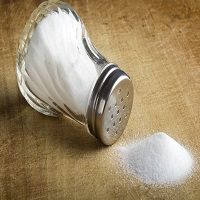Article
High-Salt Diet Beneficial for Immune System
Author(s):
A high-salt diet is widely associated with heart disease and stroke. However, a study published on March 3 in Cell Metabolism suggests the diet boosts the immune system which protects against infections.

A high-salt diet is widely associated with heart disease and stroke. However, a study published on March 3 in Cell Metabolism suggests the diet boosts the immune system which protects against infections.
After previous research showed mice infected by cage mates had high levels of salt present at infection sites, Jonathan Jantsch, a microbiologist at Universitätsklinikum Regensburg and Universität Regensburg, and his colleagues explored the parallel between infections and salt buildup in the skin, this time in humans.
"Our current study challenges this one-sided view and suggests that increasing salt accumulation at the site of infections might be an ancient strategy to ward off infections, long before antibiotics were invented," Jantsch said in a news release.
In doing so, the investigators discovered “increasing Na+ content in the skin by a high-salt diet boosted activation of macrophages in a Nfat5-dependent manner and promoted cutaneous antimicrobial defense.” Furthermore, they also reported this mechanism caused patients’ feet to heal when infected with Leishmania major, a protozoan parasite.
“Our findings support the idea that salt metabolism is a physiological component in cutaneous immunological barrier formation to ward off infections,” the researchers concluded. “Salt deposition might serve as an ancient mechanism to aid in immune-mediated pathogen removal.”
Though their research underscored the benefits of a high-salt diet to the immune system, Jantsch claimed their study doesn’t promote a widespread adoption of the diet, as there is mounting evidence that it is also linked to hypertension and cardiovascular diseases.
"Due to the overwhelming clinical studies demonstrating that high dietary salt is detrimental to hypertension and cardiovascular diseases, we feel that at present our data does not justify recommendations on high dietary salt in the general population," Jantsch said. "Nevertheless, in situations where endogenous accumulation of salt to sites of infection is insufficient, supplementation of salt might be a therapeutic option. But this needs to be addressed in further studies."
Moving forward, the team plans to closely analyze how the salt collection brings about immune responses and why this mechanism occurs in older people.





